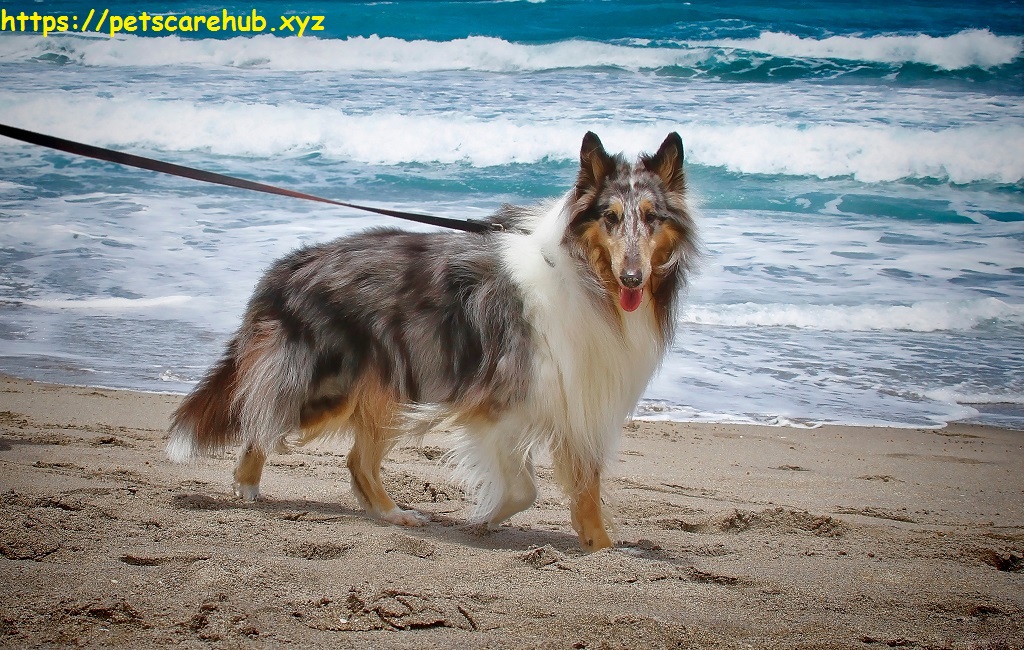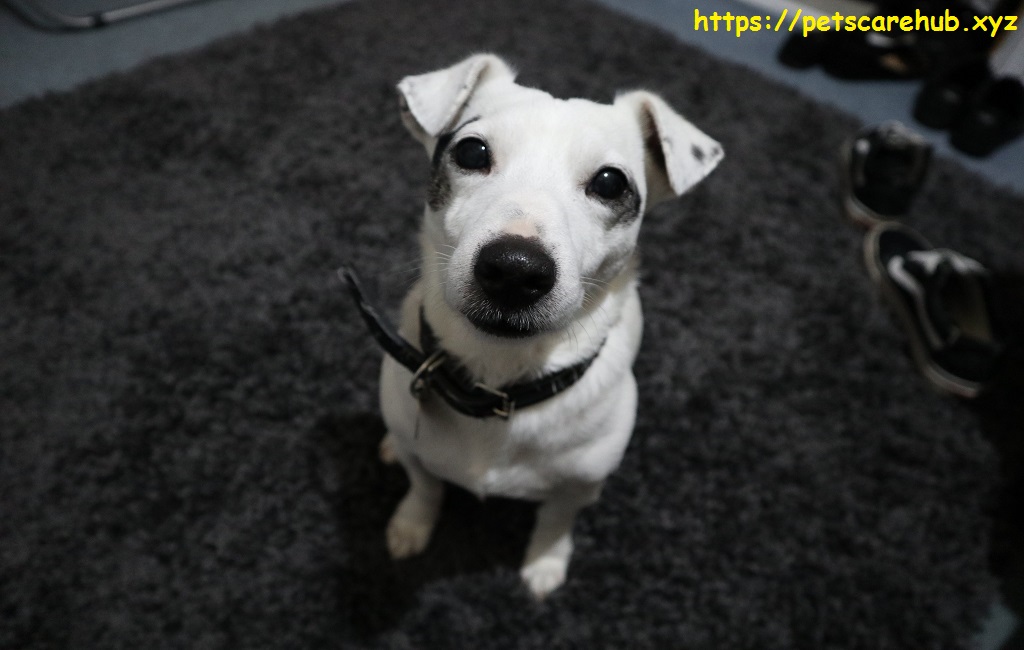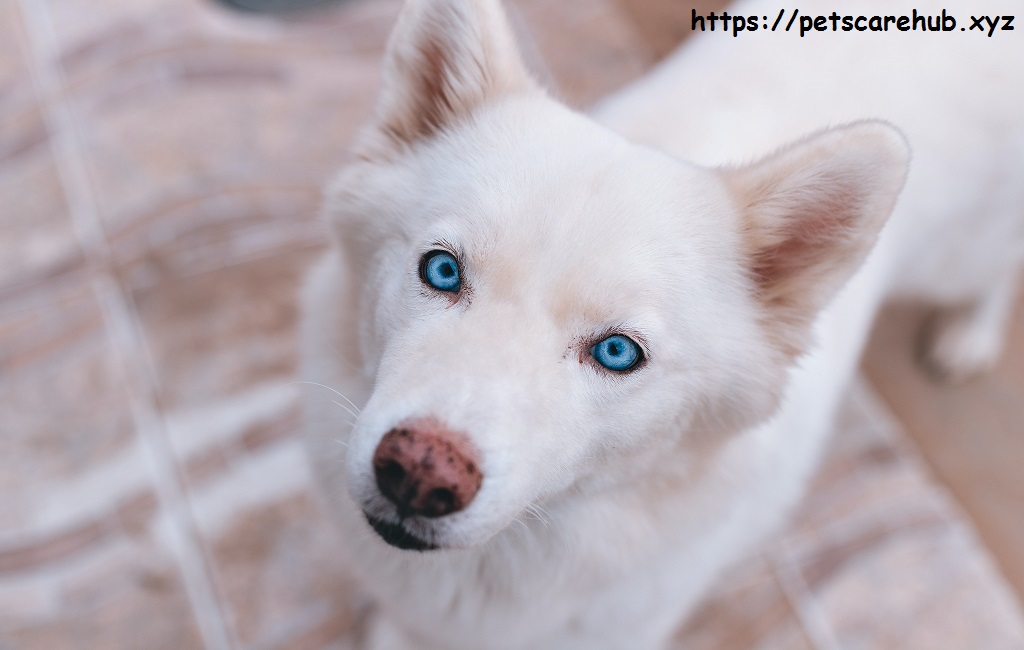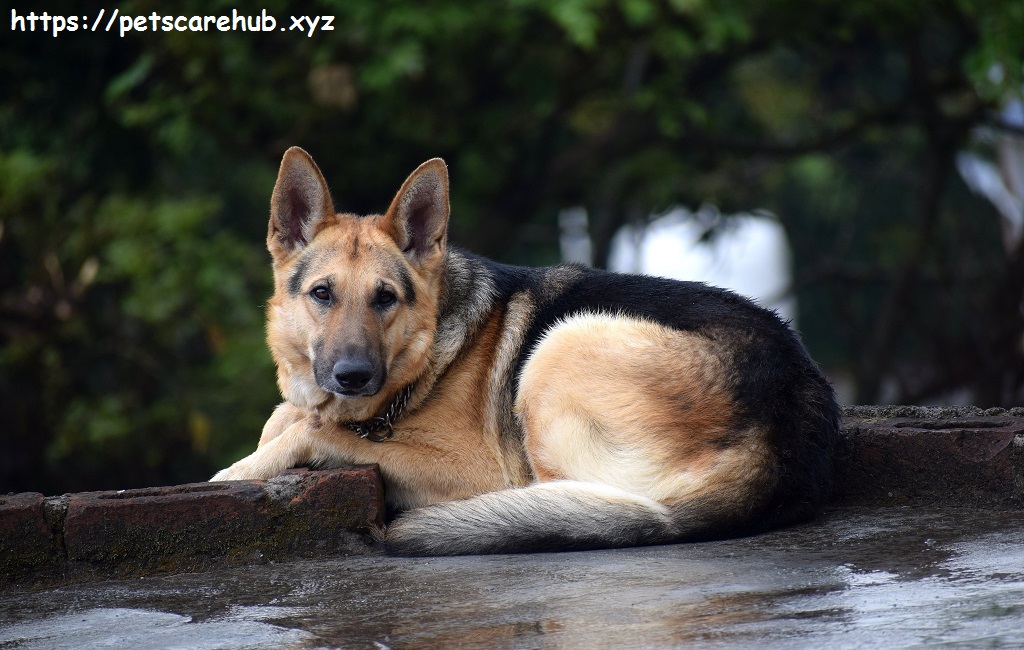When your dog acts a little strange, have you ever thought about what they’re trying to say? Well, if you’ve noticed that your dog is suddenly in pain, throwing up, or even changing how they act and what they want to eat, it may not be a short-term problem. We’ll talk in depth about dogs bowel blockage in today’s blog post. This is a disease that can be both scary and very risky. Come with us as we go over the symptoms and signs you should look out for to understand this problem and get your pet friend the care they need right away!
A Brief Look at Dogs Bowel Blockage
Dogs of all ages and types can get gut obstruction, which is also called stomach blocking. It is a dangerous sickness that can be life-threatening. When something gets in the way of the digestive tract’s normal flow of food and waste, gas, fluids, and chewed food can build up inside your dog’s bowels.

This part will go into more detail about gut blockage in dogs, including what causes it, what signs to look out for, and how it might be treated. Gaining a better understanding of this condition will help you spot it faster and act quickly if your furry friend ever experiences this medical emergency.
What makes dogs bowel blockage:
There are several reasons a dog might get dogs bowel blockage. The most common reason is eating things that aren’t food, like toys, bones, rocks, or plastic pieces. These things can get stuck in the stomach or small intestine if they are eaten and cause of dogs bowel blockage.
Some other reasons could be digestive system tumors that block the movement of food or waste; intussusception, which is when one part of the gut folds into another; hernias; or even parasites like roundworms that can get stuck in your dogs bowel blockage with other things.
Sign and Symptoms for dogs bowel blockage.
Dogs may show different signs of a bowel obstruction based on where the dogs bowel blockage is and how bad it is. Some typical signs are throwing up right after eating or drinking water, stomach pain that sounds like whining or crying, lack of hunger, feeling tired, and having to strain to go to the bathroom.
Your dog may become thirsty, have stomach swelling, or even start passing blood in their stool as the block gets worse. In the worst cases, the dog could go into shock.
Figure out:
If you think your dog might have a dogs bowel blockage, you need to take them to the vet right away so they can be diagnosed and treated. The vet will start by getting a full background from you, including any recent changes to your pet’s food or strange items it may have eaten.
Next, they might do a physical exam to see if there are any clear signs of pain or a blockage in the digestive system. Diagnostic tests like X-rays or ultrasounds may also be needed to see what’s wrong and see if there are any possible dogs bowel blockage.
How to treat from dogs bowel blockage:
The best way to treat dogs bowel blockage relies on how bad the problem is and where it is located. In some cases, your doctor may try to remove the object that is blocking the wound without surgery by hand.
But if you can’t do that or if your dog’s situation is very bad, he will need surgery to remove the blockage and fix any damaged tissues. Your dogs bowel blockage will probably need to stay in the vet’s office while it heals so that it can be watched and given comforting care.
How to stop dogs bowel blockage:
If you want to keep your dog from getting a dogs bowel blockage, watch what they eat very carefully, especially when they are playing or exploring outside. Keep an eye on them while they eat, and don’t give them toys or bones that could break into little pieces.

You should get your dog to the veterinarian right away if you notice any changes in its behavior or signs that could mean it has a dogs bowel blockage. Most dogs can fully heal from this condition and go back to their normal routines with the right care and treatment.
How to Tell If Your Dogs Bowel Blockage
When something gets in the way of processed food moving normally through the intestines, it’s called dogs bowel blockage or intestinal obstruction. It’s a dangerous situation that could be life-threatening. In dogs, this can be caused by things like foreign bodies, tumors, twisting intestines, or even some medicines. No matter what caused the gut block, it is important to recognize the early warning signs and symptoms for dogs bowel blockage so that treatment can begin quickly and further problems are avoided.
Some of the most common signs that your dogs bowel blockage are:
1. Being sick
When a dogs bowel blockage, one of the first signs is that it throws up. This might happen once in a while at first, but as the blockage gets worse, it could happen more often and with more force. Because food can’t get through the blocked area, the vomit may contain bits of food that haven’t been processed or bile.
2. Not Wanting to Eat
Dogs bowel blockage may lose their desire or refuse to eat at all. This could be because of feeling sick from throwing up a lot or having stomach pain from gas or fluid getting stuck there.
3. Pain and strain in the abdomen
While your dog may be antsy, unwilling to move or walk, crying or panting a lot, or becoming violent when touched near their stomach, this could be a sign that they are in pain. Besides the pain, you may also notice that their belly gets swollen or enlarged. This means that gas has built up in their dogs bowel blockage and is causing more pressure.
Changes in hunger and behavior
Behavioral and food changes in dogs can be early signs of a dogs bowel blockage. If your dog’s normal habits and routines change all of a sudden, it could mean that something is wrong with their digestive system.
1. Changes in how people act:
When dogs act differently than they usually do, it can be a sign that something is wrong. Some common changes in behavior that could mean you have a dogs bowel blockage are:
Restlessness or agitation: If your dog is moving around the house or changing positions all the time, it could be a sign that they are in pain because their bowels are backed up.
– Licking or chewing on the same spot for a long time: Dogs will often focus on one part of their body to feel better when they are in pain or discomfort. If your dog is scratching or chewing their belly area a lot, they may be trying to get rid of pressure that is being caused by something dogs bowel blockage.
– Hiding or avoiding interaction: If a dog is in pain, it might choose to hide instead of interacting with other dogs. If your normally social dog starts spending more time alone, you should look into it further.

2. Changes in your hunger due to dogs bowel blockage:
A good hunger is important for all living things, but dogs bowel blockage may not want to eat as much because the blockage makes it hard for them to eat easily.
Refusing to eat: If your pet’s intestines are blocked, they may feel sick and have stomach pain, which makes it hard for them to keep food down. In the end, they might not want to eat at all.
– Eating things that aren’t food: Sometimes, dogs will try to eat things that aren’t food to try to feel better because of the dogs bowel blockage. These can be things like rocks, grass, or even fabric.
You should take your dog to the vet right away if you see changes in their behavior or if they seem hungry. These signs could be early warning signs of a dogs bowel blockage. If you don’t see a doctor right away, they could get worse.
Vomiting, diarrhea, or having a hard time going to the bathroom causing dogs bowel blockage
Dog owners should know that their dog’s intestines are usually blocked when it throws up, has diarrhea, or can’t go to the bathroom. These signs could mean that your dog’s digestive system is blocked, which is very bad for his health if you don’t treat them.
1. Getting sick with dogs bowel blockage:
That’s okay if your dog throws up once in a while—sometimes it means they ate something bad or their stomach is upset. If you throw up a lot or for a long time, though, it could mean that your gut is blocked. Sometimes, something gets in the way of the upper GI tract, stopping food from moving from the stomach to the intestines. Either the food isn’t fully digested or it smells bad. If things get really bad, you might even see blood or bile in your dog’s vomit.
2. Gut that leaks:
When a dog’s intestines are clogged, they often have diarrhea along with stomach pain and loose stools. If the lower GI system gets blocked, waste can’t move properly, which leads to this condition. Your dog’s poop could look like water, a half-formed clump, or blood or mucus pieces. If you don’t treat diarrhea that won’t go away, it can dry you out and mess up your electrolytes.
3. For loose stools:
Constipation is when you have trouble passing stools. It can happen if you don’t go to the bathroom often or if you strain when you do. It does happen when something gets in the way of poop moving through the gut. It’s possible that your dog will be in pain while they’re trying to go to the bathroom, leave small or hard stools, or push to go.
Pay close attention to how often your dog poops and take him to the vet right away if you see any of these signs. Dogs bowel blockage can get worse and lead to an intestine rupture, an infection, or even death if it is not treated. So, you need to get your dog the help they need right away to give them the best chance of fully recovering.
Trouble or pain in the stomach due to dogs bowel blockage
Many dogs with a clogged intestine have pain or swelling in the stomach, which is one of the first things pet owners notice. It takes place when something gets stuck in the stomach and food and drinks can’t pass through.
If your stomach swells or spreads out in a way that doesn’t make sense, you have bloating. This makes your stomach look bigger than usual. Also, touching it might make you feel bad and tight. When a dog’s belly is swollen causing dogs bowel blockage, it can be hard for them to lie down or walk normally because of the pressure.
Back pain, on the other hand, can be a dull ache or sharp stomach cramps. Barking, panting, and moving around to find a better position are all signs that a dog is not happy. Because they are in pain, they may also lose their appetite and feel tired.
Lots of different things can make your dog hurt or bloat, so pay attention to any other signs they may show. These signs probably won’t go away on their own if you have dogs bowel blockage. You should see a doctor right away.
What makes stomachs hurt or swell up most of the time due to dogs bowel blockage?
1) Dogs like to chew on things they shouldn’t, which can lead them to swallow things like bones, rocks, toys, and other things they shouldn’t. They may feel pain and bloating because this can dogs bowel blockage their gut.

2) Parasites in the intestines: Roundworms, hookworms, and tapeworms are some of the parasites that can get into the intestines and irritate or block it, which can help with pain and gas.
3. Tumors: Some kinds of tumors can grow in the intestines, which can make it hard for your dog to eat and make them feel bad.
If your dog doesn’t go to the bathroom for a few days, waste can build up in their stomach and hurt and make them bloat.
Making a mess
When a dogs bowel blockage, it often throws up as well. It is not possible for food and drinks to move through a blocked stomach. Your dog might throw up food or water that they have already eaten or drunk.
Some people may also vomit up pieces of things they didn’t mean to swallow. Your dog may be drooling, licking their lips a lot, or retching without making any material.
It’s important to remember that other health problems can also make you throw up. You can expect your dog to throw up sometimes if they eat something bad or have a stomachache. If you throw up more often or with blood or bile, on the other hand, it could mean you have a bigger problem, like a dogs bowel blockage.
Have diarrhea
When a dog’s intestines are blocked, they often have diarrhea as well. Things that block the digestive system make it hard for food to move through. This can cause wet stools to build up behind the dogs bowel blockage. Your dog will go to the bathroom a lot and often with a lot of water.
When your dog tries to go to the bathroom, he or she may strain or make noises that sound like groans. Because the blockage is bothering them or making them swell up, you might even see blood or phlegm in their poop.
Not only can diarrhea be caused by changes in food, but it can also be caused by diseases and other things. If your pet has other signs of dogs bowel blockage, though, you should take them to the vet for more tests and attention.
Not being hungry and losing weight due to dogs bowel blockage
When dogs bowel blockage, they may also lose their appetite and weight. If there is something in the way of digestion, food can’t move through it properly. So you won’t be as hungry and won’t be as likely to eat enough. This could make you lose weight if you don’t treat it.
Dogs bowel blockage might also lose weight because of something else going on, like bugs or tumors in the intestines. Watch how much your dog eats and how much it weighs. Talk to your vet if you see any big changes.
Being weak and tired with dogs bowel blockage
A dog may also be tired and weak if its intestines are clogged. This means that your dog can’t get food, so it may feel weak and stop moving around as much. Being in pain, bloating, or having other bad feelings can also make them tired and not want to do normal things.
Being tired and weak can also mean you have other health issues, so it’s best to talk to your doctor to get the right diagnosis and care.
Lastly, dogs bowel blockage often have stomach pain or bloating, vomiting, diarrhea, loss of appetite, weight loss, and feeling weak and tired. If these things happen to your dog, you should take them to the veterinarian right away so they can figure out what’s wrong and fix it. You can avoid more problems and have a better chance of fully recovering if you get care right away.
Having trouble going to the bathroom or passing gas
If your dog is having trouble going to the bathroom, it’s likely that their intestines are blocked. This could mean that something is in the dog’s digestive system, making it hurt and stopping it from going to the bathroom normally.
Different things could be making it hard for a dog to go to the bathroom or pass gas or stool. What if the dogs bowel blockage is close to the rectum? That would make it hard for gas and trash to move through. This means that your dog might strain or show signs of pain when trying to go to the bathroom.
What if the dogs bowel blockage is higher up in the digestive system, like in the small intestine? This could also make it hard to pass gas or stool. This makes it hard for food and waste to pass through, which makes your dog bloated and constipated.
If your dog is having trouble going to the bathroom, you may notice changes in his belly. If your pet’s belly gets bigger, it could mean that something is restricting their digestion further down the line.

If you think your dog might be having trouble going to the bathroom on a regular basis, you should look out for other signs. If they can’t keep anything down, they might throw up. They may also lose their appetite, feel tired, and lose weight.
A clogged gut can be very bad for your pet’s health if you don’t fix it. If you see changes in the way your dog poops or any other signs that point to a problem, you should take your dog to the vet right away.
What gets dogs bowel blockage:
A dog’s constipation could be caused by a number of different issues, from minor ones that won’t kill them to major ones that could. People who have dogs should know about these things and how they can clog up their pet’s digestive system.
1. One of the most common reasons dogs can’t go to the bathroom is that they have something in their way. Dogs like to chew on and swallow a lot of different things, like socks, rocks, hair ties, toys, and bones. Things from the outside can get stuck in the stomach and make it hard to move.
2. Intestinal polyps or tumors: Growths or tumors in the bowels can also make it hard for food to move because they block the way. These lumps need to be looked at by a vet to see if they are harmful.
3. When one part of the stomach folds into another part, it blocks the flow of food. This is called intussusception. It can happen to anyone, but puppies are most likely to get it.
4. Strictures are small spots in the intestines that make it hard for food to move through. They are often found next to tumors and polyps. They might be caused by surgeries you’ve had in the past or inflammatory diseases like colitis.
5. Dogs have been known to eat things that aren’t food, like socks, strings, yarn, tinsel, rope, and more. These things can get stuck in the stomach and stop it from working.
6. Hernias: Dogs can get them too, just like people do. Most hernias happen in the abdomen. If they get stuck or put pressure on nearby structures, they can block the intestines.
7. Paravovirus: This virus is very easy for other dogs to get and can make the intestines swell and become inflamed, which can lead to dogs bowel blockage. It can also be hard to digest food and keep your bowels moving when you have certain viruses and parasites, like roundworms.
8. Constipation can also be caused by not drinking enough water. If you don’t treat it quickly, it can turn into a block.
How to tell if your dogs bowel blockage
When dogs bowel blockage, there are different signs that depend on where it is and how bad it is. A lot of the time, them
Throwing up (it could be a projectile)
Being unable to eat
Getting ready to go to the bathroom
Trouble or pain in the stomach (dogs may look worried or upset)
Gooey diarrhea that could have blood in it
Being tired or weak
Stomach pain or swelling
Having trouble breathing or breathing faster or slower
Very hot weather
You should take your dog to the vet right away if you see any of these signs. A clogged intestine could kill you if you don’t fix it.
What You Can Do to Tell If Your Dogs Bowel Obstruction
Your vet will do a physical exam and order diagnostic tests to make sure the diagnosis is correct and find out what caused the problem if you think your dogs bowel blockage. Here are some of them:
X-rays and ultrasounds are used to look for signs of a blockage and figure out where and why the dogs bowel blockage is happening.

A blood test to check the health of the organs and look for signs of infection or tiredness
A look at the poop to make sure there aren’t any parasites
In this method, you touch your belly with your hands to feel for lumps and sore spots.
Sometimes, cutting edge surgery is needed to find and remove the dogs bowel blockage.
What to Do If Your Dogs Bowel Blockage
There are different ways to treat gut obstructions based on factors like the obstruction severity, location, and the cause. Some treatments that could work are:
1. Fluids through an IV: If your dog is thirsty because they have been vomiting or having diarrhea, they may need to get fluids through an IV until they are safe.
2. If the blockage is caused by a growth or something foreign, your vet may need to do surgery to remove it. This is an emergency treatment that might be needed if the blockage is very painful or in a place that an endoscope can’t reach.
3. Medicines: Sometimes, medicines are suggested to help ease pain, reduce swelling, or treat underlying conditions (like infections) that may have caused the blockage.
4. Laxatives and enemas: Depending on what caused the dogs bowel blockage, your doctor may try to use laxatives or enemas to help clear it out.
5. Changes to your dog’s diet: If the blockage was caused by him swallowing something strange, your vet may suggest that you switch him to a special diet after treatment to keep it from happening again.
Manage yourself better and for a longer time.
When you have a dogs bowel blockage, how long it takes to get better depends on how bad it was and if there were any other issues that led to it. The vet may want you to take your dog back for follow-up visits to check on their health and see if there are any problems. Most dogs get better after treatment.
That your dog doesn’t have to go to the bathroom outside again, watch their behavior and make sure they can’t get to anything they could swallow. Also, keep things that could be dangerous out of reach, put food and treats in containers that pets can’t get into, and watch your dog when you’re outside.
Labradors and golden retrievers are more likely to eat something that isn’t food because they like to chew on and swallow things that aren’t food. If your breed is known to do this, you need to be extra careful to stay away from anything that could get in their way.
that said
Dogs can get very sick or even die if dogs bowel blockage. If a dog owner knows about the possible causes, signs, and treatments for this issue, they can act quickly if their dog shows signs of a blockage. Get your dog to the vet right away, and most of them will get better.
Things or dogs bowel blockage that aren’t in the digestive tract
When something gets stuck in a dog’s digestive system, it can be hard for them to go to the bathroom. This can happen if toys, bones, rocks, hairballs, or even clothes like socks or underwear get stuck in the dog’s intestines. The digestive tract can also be blocked by things like tumors, scar tissue, and intussusception, which is when one part of the intestine slides into another.
There may be more than one set of signs and symptoms for a bowel obstruction caused by foreign objects or other obstructions. These can change depending on where the obstruction is and how bad it is. If you feel sick, you might vomit or have diarrhea that has blood in it, lose your appetite or have trouble eating or drinking, have abdominal pain or bloating, strain to go to the bathroom, and feel tired.
You should take your dog to the vet right away if you think they may have swallowed something foreign or have something stuck in their digestive tract. Should you not treat an obstruction right away, it may get worse and even become life-threatening.
If you think your dog might have a bowel obstruction, the first thing you should do is check them out and see how they act. The vet may also use X-rays to find the foreign object or blockage in your dog’s digestive system. If there is a chance of an internal blockage but no object can be seen on the X-rays, other imaging techniques, like ultrasound, may be used.
This is how you’ll know if your dog has a bowel obstruction from something foreign or something else. The treatment will depend on how bad the obstruction is and how healthy your dog is in general. The person may be given a special diet or medicine to help move the object through their digestive tract if the case is mild. If things get really bad, surgery might be needed to clear the blockage.
Keep small things out of your dog’s reach so they don’t get them in the first place and keep a close eye out for any signs of a bowl obstruction. When an animal’s bowels are blocked by things like rocks or other things, it needs to see a vet right away to get help and get better.
Extra cells or lumps in the intestines
The intestines are where growths or tumors can form in a dog’s digestive system. These are called intestinal tumors. The word “benign” means that these growths are not cancerous, while “malignant” means that they are. Some of them can dogs bowel blockage.
What made it happen:
It has been said that genetics, age, diet, and being exposed to toxic substances may all play a role in intestinal tumors, but no one knows for sure. Toy Boxers and Collies are two dog breeds that are more likely than others to get colon tumors.

Signs and notes:
It is very important to find intestinal tumors early so that treatment works. But people often don’t notice these growths until they get big enough to be painful. Here are some warning signs and symptoms to look out for:
1. Being sick: Tumors in the intestines can block the digestive tract, making it impossible for food to move through normally. Your body may try to get rid of any stuck stuff by making you throw up a lot.
2. If a dog has an intestinal tumor, on the other hand, it may have diarrhea all the time because the tumor cells make more mucus.
3. When the tumor gets bigger and dogs bowel blockage from moving, your dog may feel pain or discomfort in the abdomen.
4. It’s possible for your dog to lose weight even if they eat well because a growing tumor can make digestion harder. This can make them malnourished and make them lose weight.
5. Lack of hunger: If your dog has an intestinal tumor, it might always feel full and not want to eat.
6. Because the tumor is hurting and making your dog uncomfortable, you may notice that he or she is less active and less willing to move around or exercise. A lot of sleep may also happen.
Find out:
If your vet thinks your dog might have an intestinal tumor, they will do a full physical exam and other tests to find out for sure. X-rays, ultrasounds, blood tests, and endoscopies (where a thin tube with a camera is put into the digestive tract) are a few of these.
How to take care from dogs bowel blockage:
What is the best way to treat intestinal tumors? It depends on where they are, how big they are, and whether they are cancerous. Surgery is the most common way. During surgery, the tumor and any affected parts of the intestine are taken out. Some people may also be told to get radiation or chemotherapy.
What’s ahead:
What happens to dogs with tumors in their intestines depends on a lot of factors, like the kind of tumor and how quickly it is found. Most of the time, getting treatment and a diagnosis early help people do better.
How to end it:
You can’t be sure that your dog won’t get intestinal tumors. They are less likely to get sick, though, if you feed them well, keep toxins and chemicals out of their food and environment, and take them to the vet for regular checkups.
Infections or parasites in the intestines
Dogs often have problems with their intestines because of these tiny creatures. This is very important for puppies and dogs that spend a lot of time outside. With these parasites, your dog’s digestive system can get clogged up and hurt, so it needs medical help right away.
Some of the most common parasites that live in dogs bowel blockage are roundworms, hookworms, whipworms, and tapeworms. These parasites can get into your body if you touch dirty soil or animal waste. Puppies can also get intestinal parasites from their mother’s milk or while they are still in the womb.
These parasitic infections can not only dogs bowel blockage, but they can also lead to anemia, weight loss, and slow growth in young dogs, among other serious health issues. People who own dogs should know the signs of intestinal parasites so they can treat their dog right away.
How to Tell If You Have Parasites in Dogs Bowel Blockage
If you have an infection with an intestinal parasite, the symptoms will depend on the type of parasite and how bad the infestation is. Sometimes, dogs won’t show any signs of being sick until it’s really bad.
Your dog might have an intestinal parasite, though, if any of these things happen:
1. Diarrhea is one of the most common signs that you have an infection with an intestinal parasite. The diarrhea could be mild to severe, and it might have blood or mucus in it.
2. Dogs that have parasitic infections may also vomit. The vomiting can be mild to severe and can happen a lot.
3. That is, your dog may not want to eat as much or at all if they have parasites.
4. Because they have diarrhea and don’t want to eat, dogs bowel blockage with intestinal parasites may lose weight even though they don’t mean to.
5. The dog may look and act more tired than usual, and it may not want to play or go for walks as much.
6. Dogs that have intestinal parasites that dogs bowel blockage may pace, whine, or guard their stomachs to show that they are in pain.
7. Worms in the poop: If you see worms in your dog’s poop, it means it has an infection with a parasite.
8. Dogs that have a lot of intestinal parasites can get anemia because the parasites eat their blood and make them lose blood.
If any of these things happen to your dogs bowel blockage, you should take them to the vet right away to get a proper diagnosis and treatment plan. Most intestinal parasite infections can be cured quickly and won’t hurt your dog’s health in the long run if you treat them right away.
Keeping parasites out of the dogs bowel blockage
Keeping parasites out of your dog’s gut is an important part of keeping him healthy. Here are some things you can do to keep parasites from getting into your dog’s gut:
1. Keep an eye on your dog when it’s outside and tell it not to eat or sniff poop or dirty ground.
2. Clean up after your dog and properly dispose of their waste to stop the spread of parasites in the environment.
3. Clean up the area where your dog lives and get rid of any waste right away.
4. Deworm your dog as often as your veterinarian tells you to.
5. When you take your dog to the veterinarian for regular checkups, the vet will look at his or her stool to find parasites early on.
Watch out for your furry friend and make sure they are safe and happy by being careful and taking steps.
How to Take Care from dogs bowel blockage
Giving dogs bowel obstruction medicine is an important part of their care. When a dog’s digestive tract gets clogged, it needs to be checked out and treated right away to avoid more problems and make it feel better.

How a dogs bowel blockage is treated will depend on how bad the dogs bowel blockage is, where it is located, and other things like the dog’s age and health in general. Sometimes, surgery is the only way to clear out the dogs bowel blockage and make things better. Being careful, on the other hand, is usually enough to get around small problems in less important places.
Bowel obstructions that are mild or in their early stages can be treated in a number of ways. To do this, they need to be given painkillers, anti-inflammatory drugs, and fluids through an IV. They also can’t eat for a while, usually 24 to 48 hours. Reducing inflammation, giving support through water and energy supplements, and letting any passage that may have happened before close monitoring allow a full evaluation to make sure that this method works to get rid of symptoms are all part of the plan.
Surgery must be done if the symptoms don’t get better after 24 to 48 hours or get worse while being treated with medicine. The blockage will be found in your dog’s stomach or intestines by the vet, and it will be taken out during surgery. You might also have to fix any damage the blockage caused by staying in one place for too long.
Because there are risks, a qualified veterinarian should only do surgery when they think it is necessary. The good news is that improvements in veterinary medicine have made treatment for gut blockages much more effective, with higher success rates than ever before. When a dog has surgery to clear up a bowel problem, they usually get better completely from dogs bowel blockage.
If there are only small or partial clogs, decompressing your dog’s stomach with a tube may help and keep surgery from being needed. A small tube is put into the dog’s throat and stomach to drain any gas or fluid that has built up in their digestive system.
A clogged gut can also cause a bacterial illness in your dog’s digestive system. If your vet thinks this is the case, they may give your dog medicines.
Don’t change anything that your veterinarian tells you to do once your pet starts treatment. This will help them get better quickly. It’s not a good idea to feed your dog until you talk to your vet about it.
First, safety
We’ve already said that problems are worse to fix than to avoid them. These things will help your dog’s chances of not being able to go to the bathroom fully:
– Watch your cats closely while they chew on their toys.
– Pay close attention to what they take outside.
– Make sure you train them right and tell them off when you see them chewing on something they shouldn’t.
– Do not give your dog any human food, especially bones that have been cooked.
You should teach your pets how to do the Heimlich move.
– Make sure you see your doctor regularly so that you can catch any problems early.
That being said
Constipation is a pretty common problem in dogs bowel blockage that can cause them a lot of pain and stress. Dogs with this condition need to be found and handled right away to keep them from getting worse or even dying. If you see any signs that your pet’s bowels are getting backed up, you should phone your vet right away.
Read More:
– Mayo Clinic: Dogs Bowel Blockage
– The American Veterinary Medical Association: Cats Who Can’t Pass Hairballs
– Merck Veterinary Manual: The bowels getting clogged
– GDV (Acute Abdomen/Gastric Dilation-Volvulus) from the AKC Canine Health Foundation
– Tumors in the intestines of dogs at VCA Hospitals

1 thought on “Signs and Symptoms of Dogs Bowel Blockage”